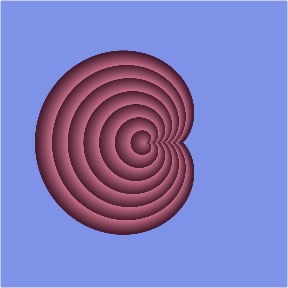
World Kidney Day
Happy World Kidney Day! For those previously unaware of this holiday, World Kidney Day is a global awareness campaign observed annually on the 2nd Thursday in March. The goal of the campaign is to raise awareness of the importance of our kidneys to our overall health and to reduce the impact of kidney diseases.1 Each year has a theme, and the theme for 2023 is “Preparing for the unexpected, supporting the vulnerable”
What is a kidney
The kidneys are a pair of reddish-brown organs that are found in vertebrates. The kidneys' primary function is to eliminate metabolic waste from the body through urine. The primary functional unit of the kidneys is called the nephron. The nephron filters incoming blood in the glomerulus, and the filtrate travels through the renal tubule. The tubule then returns needed nutrients to the blood, and the waste becomes urine.2
Functions of the Kidney
Filtration
As mentioned previously, the kidney's primary function is to filter waste out of the blood. This function is important enough that most animals will die within a week after the renal function stops completely.3 Metabolic waste is continuously generated during normal physiological processes and is transported through the body through the circulatory system. Some of this waste, such as nitrogenous waste, can become toxic if allowed to accumulate. During filtration, the kidneys remove this waste from the blood system, and it is excreted from the body in the urine.
Nutrient conservation
Nutrients are transported throughout the body through the blood. It is important to ensure that these nutrients are not unintentionally lost in the urine, as this would starve the body’s organs of the fuel they need to survive. The kidney can reabsorb filtered nutrients back into the blood to prevent this. For example, the renal tubule can reclaim more than 99% of the several hundred millimoles of amino acids that would be otherwise lost through glomerular filtration.3
Electrolyte balance
Electrolyte concentrations in the blood are maintained within narrow ranges and can cause various undesirable and possibly lethal symptoms when the concentration of various electrolytes moves outside this range. The kidney plays a significant role in maintaining the appropriate electrolyte levels in plasma. In times of excess, the kidney will remove electrolytes from the blood and dispose of them in the urine but will reabsorb them into the blood when electrolytes are scarce.3
Kidney Diseases
Kidney problems can arise from various causes ranging from injury to cancer. Regardless of the cause, poorly functioning kidneys can result in unpleasant and potentially life-threatening symptoms. In many cases, the early signs of kidney disease are subtle, resulting in the disease being diagnosed at a later stage.
Chronic kidney disease
Chronic kidney disease (CKD) is the progressive damage and loss of kidney function over a long period of time. Chronic kidney disease is the most common form of kidney disease, and it is estimated that around 15% of US adults have some form of CKD, 90% of which don’t know they have it.4 If the damage is severe enough, the disease can progress into kidney failure, requiring dialysis and a kidney transplant. In fact, 360 people begin dialysis for the treatment of kidney failure every day.5 In the early stages there may be no noticeable symptoms, and as the disease progresses, symptoms may include tiredness, headaches, changes in urination, muscle cramps, weight loss, and others.6 Some conditions that can cause or increase the risk of CKD are diabetes, obesity, high blood pressure, family history, inherited diseases, and age.7
Kidney stones
Kidney stones are hard objects made from urine's minerals. There are 4 types of kidney stones: calcium oxalate, uric acid, struvite, and cystine, which differ in the minerals that form them. These stones can cause pain, bloody urine, fever, and other unpleasant symptoms. It is estimated that around 9% of the US is affected by kidney stones, and the prevalence is greater in men compared to women.8 Relapse is common, and estimates suggest that 50% of people relapse within 5 – 10 years, and 75% relapse in 20 years.9 While there is no way to prevent kidney stones, increasing fluid intake, limiting salt consumption, and reducing the intake of foods high in oxalates can reduce the risk.10
About the thumbnail
The thumbnail for this article is a plot of Freeth’s Nephroid, which is a curve that is kidney-shaped when plotted on a polar coordinate system. The plot was generated by graphing 5,000 curves and coloring them with a repeating gradient.
References
- World Kidney Day. 2023 WKD Theme. 2023; Available from: https://www.worldkidneyday.org/2023-campaign/2023-wkd-theme/.
- National Institute of Health. Your Kidneys and How They Work. 2018 [cited 2023 Feb. 7, 2023]; Available from: https://www.niddk.nih.gov/health-information/kidney-disease/kidneys-how-they-work.
- Kaneko, J.J., J.W. Harvey, and M.L. Bruss, Clinical biochemistry of domestic animals. 2008: Academic press
- Centers for Disease Control and Prevention. Chronic Kidney Disease Surveillance System - United States. Available from: http://www.cdc.gov/ckd.
- Centers for Disease Control and Prevention. Chronic Kidney Disease Basics. 2022; Available from: https://www.cdc.gov/kidneydisease/basics.html.
- National Institute of Health. What is Chronic Kidney Disease? 2017; Available from: https://www.niddk.nih.gov/health-information/kidney-disease/chronic-kidney-disease-ckd/what-is-chronic-kidney-disease.
- National Kidney Foundation. Chronic Kidney Disease (CKD). Available from: https://www.kidney.org/atoz/content/about-chronic-kidney-disease.
- Scales, C.D., A.C. Smith, J.M. Hanley, and C.S. Saigal, Prevalence of Kidney Stones in the United States.European Urology, 2012. 62(1): p. 160-165.
- Moe, O.W., Kidney stones: pathophysiology and medical management. The Lancet, 2006. 367(9507): p. 333-344.
- Mount Sinai. Kidney Stone Prevention. 2022; Available from: https://www.mountsinai.org/care/urology/services/kidney-stones/prevention.
About the author: Chuck Zumbaugh, MS, Ph.D. works at BSM Partners as an Assistant Manager in Nutrition Services. He has experience in biochemistry, chemistry, and animal nutrition. Outside of work, he enjoys spending time outdoors with his family in Kansas.
Follow us on LinkedIn for the latest updates on all things happening here, at BSM Partners.
This content is the property of BSM Partners. Reproduction or retransmission or repurposing of any portion of this content is expressly prohibited without the approval of BSM Partners and is governed by the terms and conditions explained here.